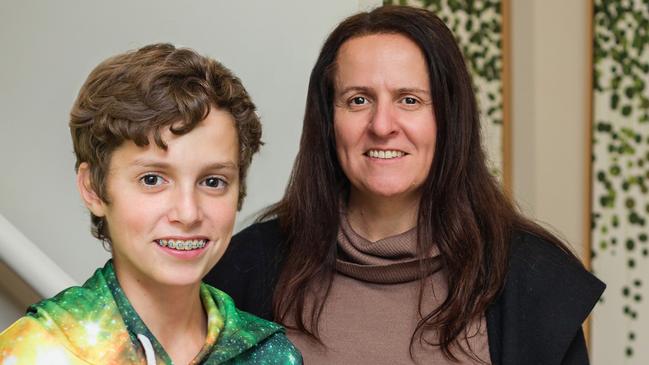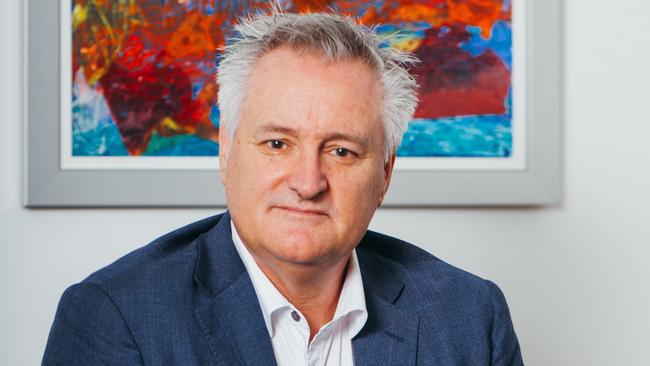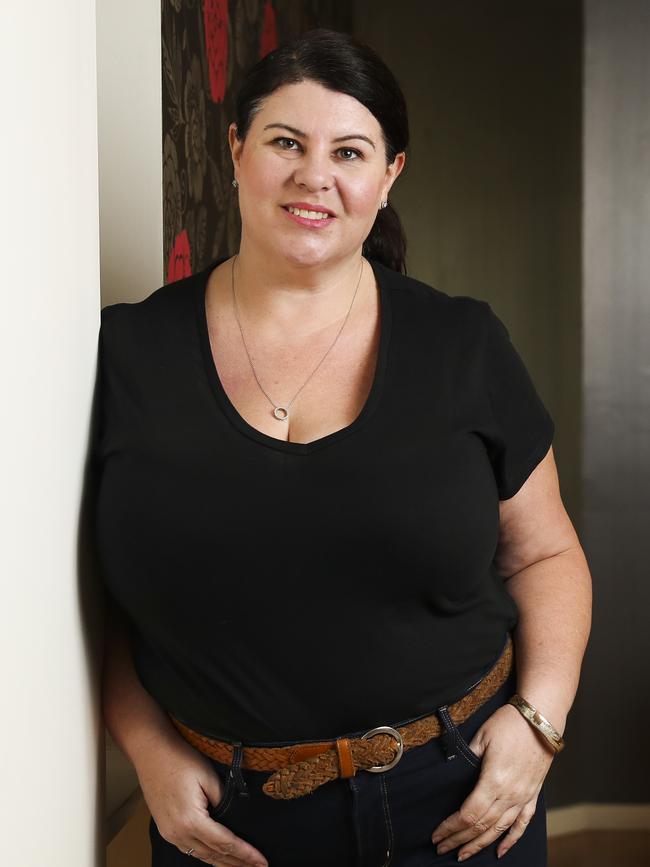Money help from mum and dad: experts’ tips to do it wisely
Parents and grandparents are widening the ways they deliver children and young adults a brighter financial future.

The Bank of Mum and Dad faces extra pressure to help their children and grandchildren get ahead financially as housing and other living costs pile up.
Housing help is among the biggest benefits that many parents are providing – from free board to assisting with a home deposit to co-investing with their adult children – while others are investing money early for their kids to help set them up for the future.
Grandparents, too, are chipping in with financial help for school fees and extra-curricular activities, finance specialists say.
New research by Australian Unity found 64 per cent of parents are investing to give their children a financial kick start, and a new breed of mum and dad Millennials are paying it forward.
“As cost-of-living increases erode household budgets, our findings clearly show that Millennials – once the beneficiaries of the Bank of Mum and Dad – feel they must now play this role for their kids,” said Australian Unity’s executive general manager – life and super, Adnan Glinac.
BIG CHALLENGES
Mr Glinac said today’s parents were “acutely aware” of the challenges faced by their children in getting into the property market.
“Parents and grandparents are worried their children will miss out and have decided to build wealth that will give the next generation a helping hand,” he said.
“With education fees and house prices growing rapidly and parents adopting this pay-it-forward mentality, we’re going to see more working parents set aside funds to give their children access to the opportunities they had.”
Parents are investing for their children in many ways. Some choose a simple bank deposits, although the income paid by these today these is still below inflation, even with higher interest rates.

Others use exchange traded funds, direct shares, listed property trusts or investment bonds, which come with tax benefits.
Among them is Natalie Lindsay, 47, who has been putting $200 each month into an investment bond for son Kane, 12.
The money sits in a diversified range of investments and the balance is approaching $10,000.
“I want him to have more options than I did,” Ms Lindsay said.
“Watching the cost of housing go gangbusters, I don’t want him to be one of those people who can never afford a home.”
“When I was young it wasn’t like this, and it’s only going to get worse. I have friends in their 30s who say they will never be able to afford a home.”
Ms Lindsay said the children of parents who put money away for them were still likely to need help from family members or loan guarantees when buying a home.
“I worry that I may not be putting away enough, and whether I need to put away more,” she said.
RENT-FREE
Helping with housing costs and home deposits is a key way parents are supporting adult children, and Australian Unity’s Mr Glinac said some families had granny flats for their kids.
“This has become more common as rents have risen and means adult kids can focus on saving to buy a property without having to pay rent,” he said.
“We’re also seeing a rising number of grandparents in retirement feel a duty to help with their grandkids’ school fees and educational support, like tutoring, music lessons and excursions. This shows the Bank of Mum and Dad meeting the needs of two younger generations.
“If interest rates continue rising, it could also make sense for Baby Boomer and Gen X parents to help their adult children pay down HELP loans, reduce their mortgage and pay down other debt.”

Mr Glinac said parents considering helping should:
• Ensure their own financial situation was okay first – “fix your own oxygen mask before helping others.
• Understand different investment vehicles and choose the right one for their circumstances.
• Be clear about the terms of their assistance, and whether they wanted any money paid back.
• If helping out with a deposit or home loan, ask whether the child could keep up with the mortgage repayments.
“Once the adult child has a mortgage, and these days most mortgages are going to be significant for first homebuyers, it’s a good idea to encourage the mortgage holder to have income protection insurance just in case,” he said.
LOAN OR GIFT?
Australian Family Lawyers principal lawyer Barry Frakes said parents should make the decision at the outset about whether their financial help was a gift, a loan or something else.
“If it is a gift, then understand and accept that you won’t get it back,” he said.
“Can you afford that? How will you feel if for some reason some disaster happens – a failed business venture or a family break up – and the money is wasted and lost as an asset to your child.
“You can’t switch from it being a gift to all of a sudden when things go bad and you want it to be a loan.”
Mr Frakes said loans to children should have documented terms and conditions, details about how they would be repaid, and should involve all parties receiving independent legal advice before signing.
“If it is neither a gift nor a loan, then it must be that you actually own a part of the property,” he said.

“If you are going to advance say 50 per cent of the purchase price and stamp duty, are you going to go on title as a 50 per cent owner? Are you going to share in the increase of the property when it is eventually sold?”
Parents should have wills the recognise family loans or other financial dealings with children, to help avoid sibling warfare if parents pass away and leave some children feeling cheated.
Mr Frakes said in the past, parental financial assistance was limited to wealthy people with extra resources.
“The very wealthy often provided a massive amount in assistance which enabled their children to have a very easy start to amassing their own fortunes, and the not so wealthy maybe gave a one-off gift to assist with a deposit for a first homebuyer,” he said.
Nowadays, more parents are seeing that being a first homebuyer has become more difficult after huge house price increases and the growth of wealth inequality.
“It is almost impossible to make the step without the help,” Mr Frakes said.
“Parents of home buyers have seen massive increases in the equity they have in their homes.
“It is much easier for them to come up with cash rather than their children borrow it. So, the capacity to help is there. Be the Bank of Mum and Dad and help your kids get on to the property ladder before the rung to enter is so high you just can’t reach that first step.”
GOVERNMENT HELP
Mortgage broker Two Red Shoes founder Rebecca Jarrett-Dalton said in the past five years she had seen greater use of parents assistance, but new government programs were taking some pressure off.
“The First Home Guarantee Scheme in the last financial year really had a positive impact,” she said.
“Parents are helping out in giving money towards a deposit, but less guarantees are being taken up currently.”
Ms Jarrett-Dalton said there was a small but growing trend of parents buying homes jointly with their children.


“That is buying a place where they can all reside,” she said. “Interestingly, though, this is equally parents helping kids and kids helping parents with the same thing.”
Some parents are buying joint investment properties with their children to reduce the loan costs and benefit from the tenants’ rent helping to repay the mortgage.
Other parents are charging board while their children remain living at home, but secretly stash the cash so it can go back to the child as a first-home deposit.
And others may provide help simply by examining government programs and banking options alongside their children, who largely have little experience in these things.
Ms Jarrett-Dalton said parents should always consider their own needs when becoming the Bank of Mum and Dad.
“If you’re thinking of gifting the kids money, do so in advance so they can top it up with their own savings over three months to show a great savings history,” she said.
“If you’re preparing to offer a guarantee, understand all of the risks and benefits and how long you will be offering the guarantee for.”
Scott Pape is on leave.






To join the conversation, please log in. Don't have an account? Register
Join the conversation, you are commenting as Logout